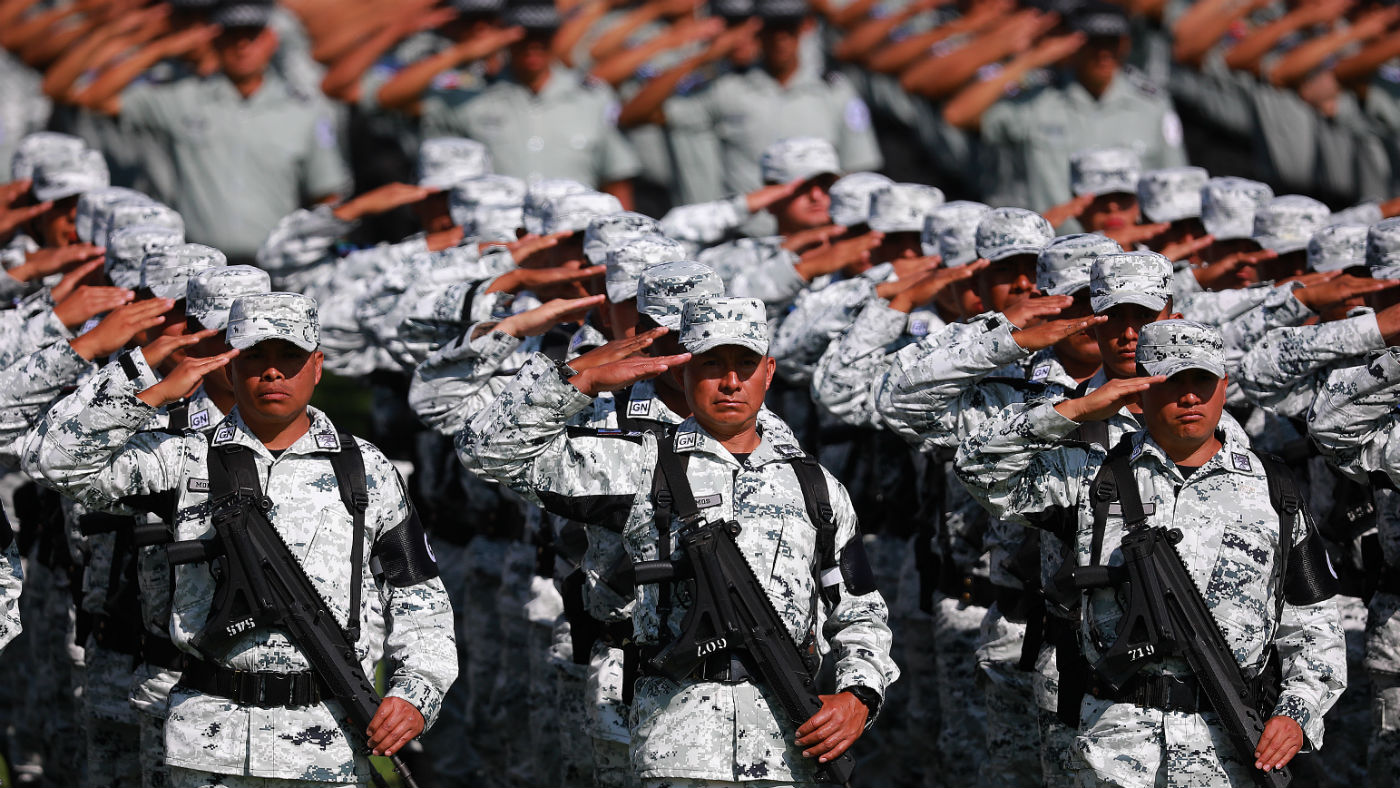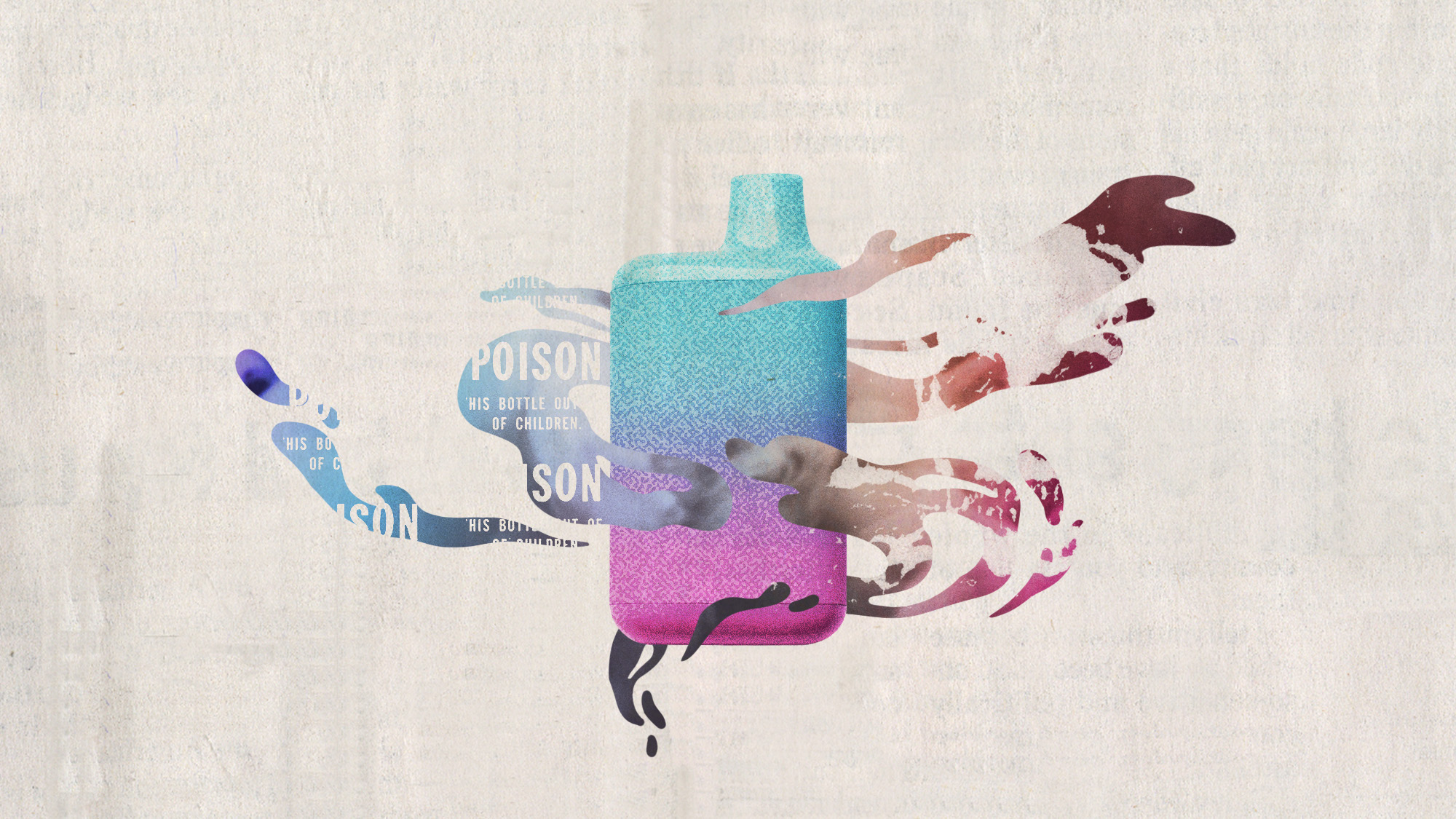Mexican president ‘wants to disband entire army’
Leftist leader faces stiff resistance to plans to put national security in the hands of the National Guard police force

A free daily email with the biggest news stories of the day – and the best features from TheWeek.com
You are now subscribed
Your newsletter sign-up was successful
Mexico’s new president has said he would like to disband the entire army and put national security in the hands of the new National Guard police force, which was inaugurated on Sunday.
In an interview with Mexican newspaper La Jornada, Andres Manuel Lopez Obrador said: “If it were up to me, I would get rid of the army and turn it into the National Guard, declare that Mexico is a pacifist country that does not need a military and that the defence of the nation, if necessary, would be done by all.”
However, the leftist leader, who is a close friend and political ally of Labour leader Jeremy Corbyn, recognised the political challenges to eliminating the military, adding: “I can’t do it because there is resistance. One thing is what is desirable and another thing is what is possible.”
The Week
Escape your echo chamber. Get the facts behind the news, plus analysis from multiple perspectives.

Sign up for The Week's Free Newsletters
From our morning news briefing to a weekly Good News Newsletter, get the best of The Week delivered directly to your inbox.
From our morning news briefing to a weekly Good News Newsletter, get the best of The Week delivered directly to your inbox.
Only a few countries in the world have abolished standing armies, among them the Latin American nations of Costa Rica and Panama. Reuters reports that Mexico’s army “has traditionally kept on the sidelines of international conflict, but has been deployed to tackle drug gangs since 2007”.
However, the decade-long “war on drugs” has not only failed to stem the tide of illegal narcotics flowing to the US, by far the biggest market for Mexican drugs, it has led to an escalation in violent between the cartels and security forces.
Last year, the country’s murder rate hit its highest level in 20 years, “and is on track to climb even higher before the end of 2019”, says Breck Dumas for The Blaze.
Describing the newly formed National Guard as “a law enforcement institution aimed at tackling Mexico’s rising violent crime” ABC News says the plan is to first distribute 70,000 members across the country and then swell the ranks to 150,000 in the coming months.
A free daily email with the biggest news stories of the day – and the best features from TheWeek.com
According to Vice, it “will eventually incorporate members of the marines, army and federal police,” and will act “kind of like if the FBI, Customs and Border Protection, National Guard and Coast Guard operated under a single command” one expert told the outlet.
Yet the creation of the National Guard “has raised concerns about the militarisation of law enforcement in Mexico,” says The Independent, with members “often implicated in abuses during ongoing efforts to subdue gang violence”.
Critics of the National Guard argue that “reliance on a federal entity for security means that states and local governments won’t be empowered to stamp out trouble on their own. They envision the National Guard moving from hotspot to hotspot, much like the military has done in recent years”, ABC News says.
Alejandro Schtulmann, president of the Mexico-city based political risk firm EMPRA told the network, “They are just rebranding something so that it's not called the army — but it's the army”.
Lopez Obrador has insisted the new force is central to his pledge to address the root causes of Mexico’s spiralling violence rather than worrying about going after the country’s drug lords like previous administrations.
To this end, nearly a third of the National Guard has already been stationed along Mexico’s southern and northern borders to stem the tide of migrants passing through the country to reach the US.
-
 Will increasing tensions with Iran boil over into war?
Will increasing tensions with Iran boil over into war?Today’s Big Question President Donald Trump has recently been threatening the country
-
 Corruption: The spy sheikh and the president
Corruption: The spy sheikh and the presidentFeature Trump is at the center of another scandal
-
 Putin’s shadow war
Putin’s shadow warFeature The Kremlin is waging a campaign of sabotage and subversion against Ukraine’s allies in the West
-
 Epstein files topple law CEO, roil UK government
Epstein files topple law CEO, roil UK governmentSpeed Read Peter Mandelson, Britain’s former ambassador to the US, is caught up in the scandal
-
 Mexico’s vape ban has led to a cartel-controlled black market
Mexico’s vape ban has led to a cartel-controlled black marketUnder the Radar Cartels have expanded their power over the sale of illicit tobacco
-
 Iran and US prepare to meet after skirmishes
Iran and US prepare to meet after skirmishesSpeed Read The incident comes amid heightened tensions in the Middle East
-
 Israel retrieves final hostage’s body from Gaza
Israel retrieves final hostage’s body from GazaSpeed Read The 24-year-old police officer was killed during the initial Hamas attack
-
 China’s Xi targets top general in growing purge
China’s Xi targets top general in growing purgeSpeed Read Zhang Youxia is being investigated over ‘grave violations’ of the law
-
 Panama and Canada are negotiating over a crucial copper mine
Panama and Canada are negotiating over a crucial copper mineIn the Spotlight Panama is set to make a final decision on the mine this summer
-
 Why Greenland’s natural resources are nearly impossible to mine
Why Greenland’s natural resources are nearly impossible to mineThe Explainer The country’s natural landscape makes the task extremely difficult
-
 Iran cuts internet as protests escalate
Iran cuts internet as protests escalateSpeed Reada Government buildings across the country have been set on fire